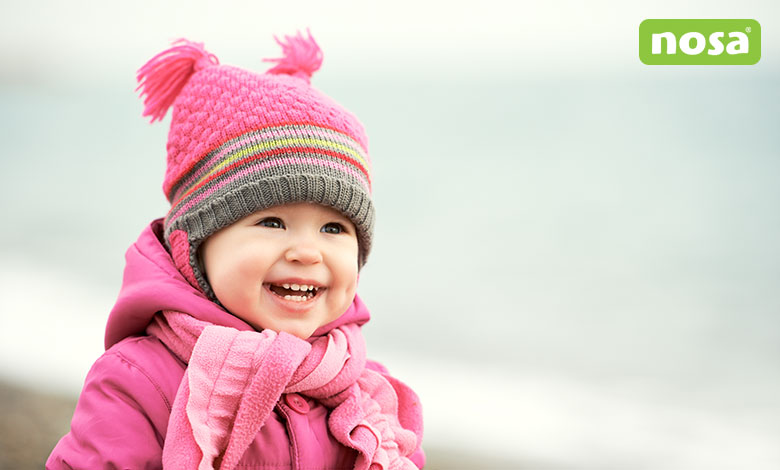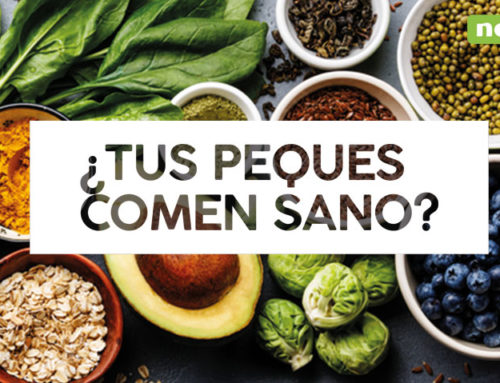The first snowfalls of the season are here. The cold weather invites us to cover ourselves with warm scarves and gloves, but not our children. They don't care if they want to run out and play in the square, the park or wherever. The little ones are happy with what they have on and they don't miss any of the accessories. However, we know that viruses are on the prowl, especially when temperatures drop. What can we do? It is impossible to totally prevent the onset of colds or flu. What we can do is help our immune system to cope with them.
STEP ONE: SUPERFOODS
A healthy, balanced diet is the first step to a strong immune system. In other words, the basis of the diet should be: vegetables, fruit, foods rich in healthy fats (such as oily fish), legumes and wholegrain carbohydrates. Everything else is not necessary: excess sugars or salt and low quality fats.
On the other hand, there are a number of foods that have properties that make them particularly good for protecting us from colds:
- Oily fish: rich in omega-3 protects against respiratory infections
- Nuts: energy to help maintain body temperature
- Pomegranate: contains vitamin C and folic acid
- Yoghurt: a must for a healthy gut flora
- Garlic: the best natural antibiotic
- Eggs: rich in selenium and zinc for a healthy immune system
- Citrus fruits: source of vitamin C, and lemon adds its antiseptic power.
- Pumpkin: source of vitamin A, boosts defences
- Honey: increases defences
SECOND STEP: BEYOND FOOD
To keep defences up, in addition to proper nutrition, it is also necessary that our children get enough sleep and sleep well. As a guideline, children should sleep about 10 hours at night and one or two hours more - a nap - until the age of 6.
Children who do not get enough rest and children who are stressed are more likely to catch colds and flu. For this reason, it is also important that they get tired. It is healthy for children to do some physical activity - they don't need to train like elite athletes, just follow their natural tendency to run and jump.
A healthy immune system also requires that little ones have time to play freely, that they are calm, that they feel safe, these little things that make them feel happy also strengthen their defences.
THIRD STEP: THE ENVIRONMENT
Children need to breathe fresh air. Winter excursions are healthy and fun. Day-to-day life often leaves us no time to enjoy ourselves, and the children go from home to school, from school to extracurricular activities and back home again. Bad weather and cold weather should not be an excuse to avoid going out in nature. It is an activity that brings experiences, happiness and health to both adults and children. In addition, sunbathing is essential for synthesising Vitamin D, a vitamin that has the capacity to increase immunity. It has been proven that its deficiency is related to a higher incidence of colds and flu.
At home we should keep the heating at bay, sudden changes in temperature are not healthy. It is important to find a comfortable temperature, there is no need to stay warm at home if it is snowing outside. It is also important to ventilate the house daily, 10 minutes of open windows allow the air to be renewed and do not lower the temperature excessively.
STEP FOUR: HYGIENE
Last but not least, in order to prevent contagion, it is essential that children get into the habit of washing their hands frequently. At least when they get home, before and after eating and after going to the toilet. It is one of the most effective and simple measures.
Although all these recommendations do not guarantee that our children will not catch a cold or flu, it is certain that if they do catch it, it will be milder and they will recover sooner if we manage to keep their defences at full strength.




Leave A Comment
You must be logged in to post a comment.